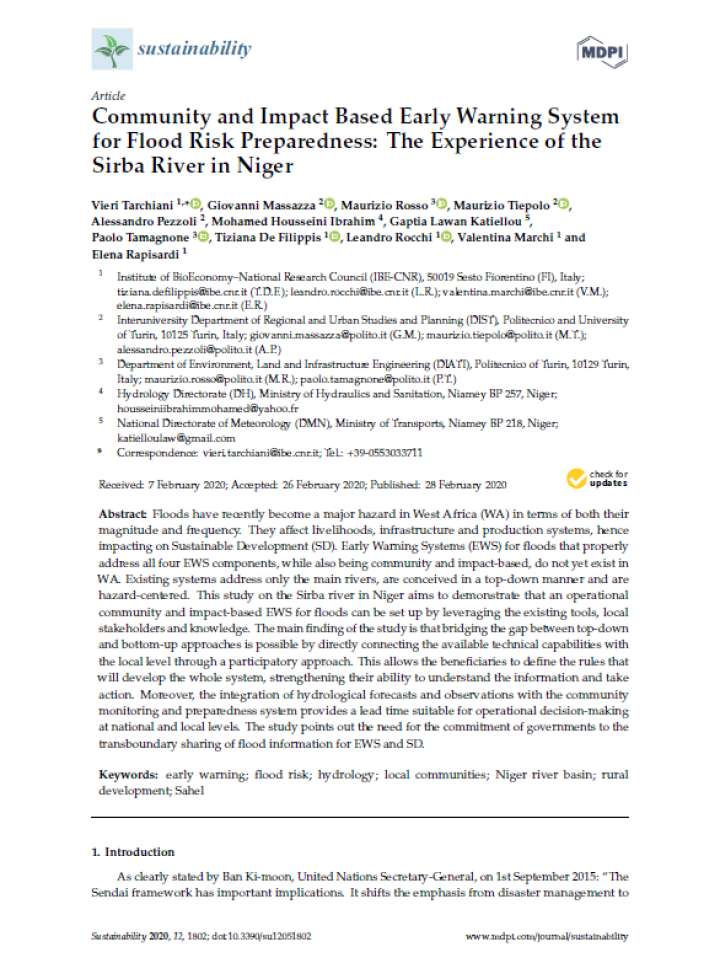Community and impact based early warning system for flood risk preparedness: The experience of the Sirba River in Niger
This study on the Sirba river in Niger aims to demonstrate that an operational community and impact-based Early Warning Systems (EWS) for floods can be set up by leveraging the existing tools, local stakeholders and knowledge. The main finding of the study is that bridging the gap between top-down and bottom-up approaches is possible by directly connecting the available technical capabilities with the local level through a participatory approach.
This allows the beneficiaries to define the rules that will develop the whole system, strengthening their ability to understand the information and take action. Moreover, the integration of hydrological forecasts and observations with the community monitoring and preparedness system provides a lead time suitable for operational decision-making at national and local levels. The study points out the need for the commitment of governments to the transboundary sharing of flood information for EWS and Sustainable Development (SD).
Explore further
